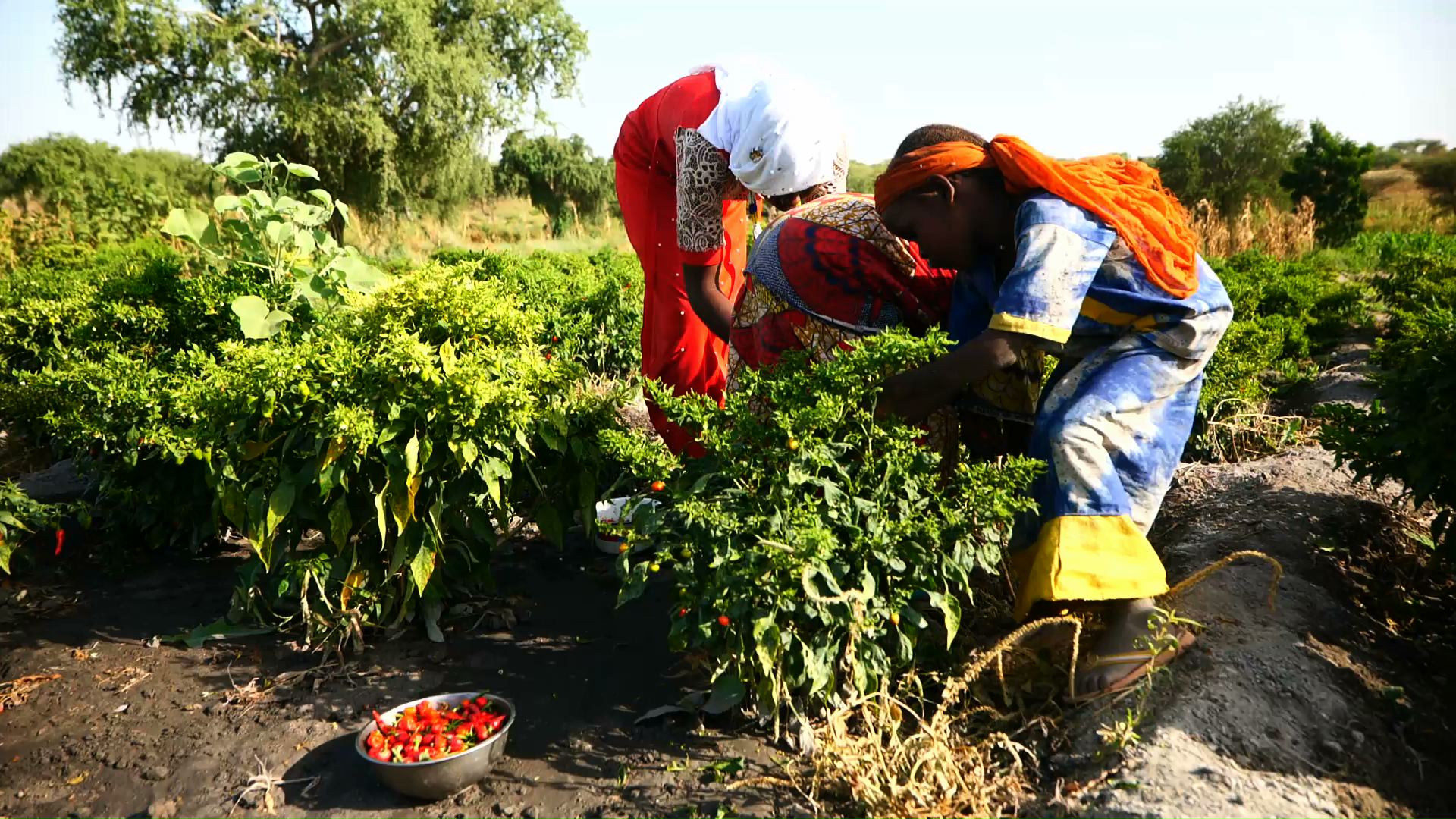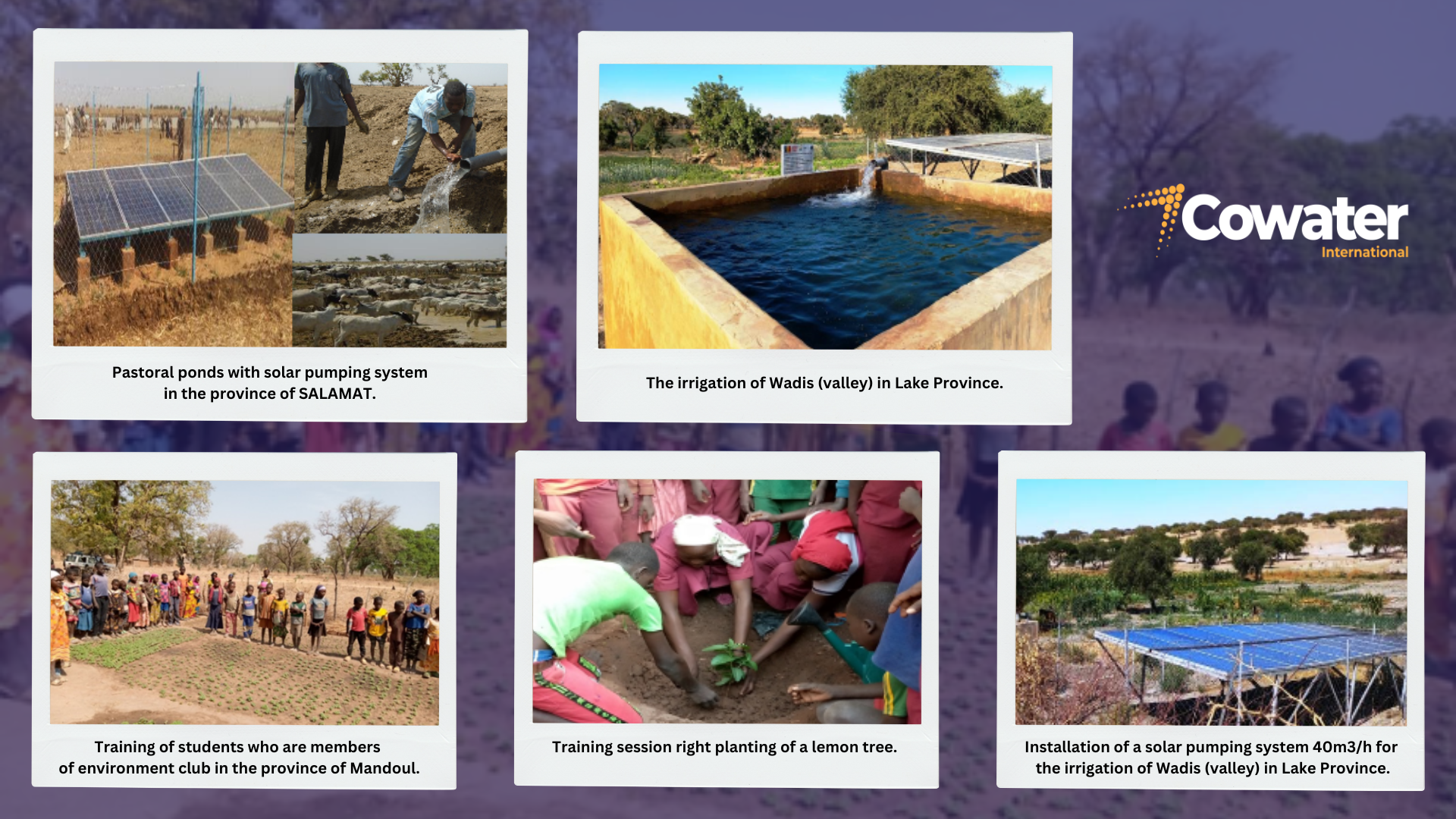
Supporting Chadian communities better adapt to the impacts of climate change
Chad is one of the most vulnerable countries in the world to climate change. With 88 percent of the population being dependent on agriculture for their livelihoods, the impact of global warming on people’s economic wellbeing is enormous. The effects of vulnerability in agriculture, forestry and land use are leading to 10-25 percent reductions in yields of food crops, primarily millet, sorghum and maize. These productivity losses are due to water deficits caused by successive droughts, high temperatures, dysfunctional agricultural seasons, disturbances in crop life cycles. Poor access to irrigation infrastructure, desertification and degradation of land and forests are exacerbating the effects on the entire food chain. The post-pandemic challenges and the war in Ukraine are further deepening Chad’s food insecurity.
Chad has prioritized climate change adaptation efforts and has developed a National Adaptation Plan (NAP) to address short, medium and long-term climate risks. In addition, Chad is committed to reduce greenhouse gas emissions by 0.5 percent (unconditional) and 19.3 percent (conditional) compared to the baseline scenario, or business as usual, by 2030. A key element of Chad’s response focuses on strengthening the resilience of local communities and ecosystems to the impacts of climate change by promoting a wide range of adaptation measures in agriculture, livestock, water management, environment and forests, renewable energy, risk management and other areas.
The European Union is supporting Chad’s efforts to address the impacts of climate on people and the economy. Since 2022, with funding from the European Union under the umbrella of the Global Climate Change Alliance project in Chad (GCCA+ Chad), Cowater International has been providing technical assistance for the project ”Strengthening governance and climate resilience in Chad”. The project aims to increase resilience to climate change in three Chadian provinces: Mandoul, Lac and Salamat.
First, the project is promoting climate-resilient adaptation solutions. It works at the local level to advance the implementation of agricultural best practices that reduce carbon emissions and promote food security for beneficiary communities. Overall, more than 5000 vulnerable people, of whom 30 percent are women, will benefit from improved access to food produced through climate-friendly agricultural practices in the three target provinces.
Second, the project supports improved soil and land management practices. Soil improvement and restoration practices have already covered more than 160 ha of agricultural land in Lac and Mandoul provinces. 1438 men and women farmers are experiencing the benefits of increased yields and better environmental management practices as a result of the application of new adaptation techniques, such as compost use and agro-forestry practices. In particular, yields for sorghum, maize, chili, onion and garlic have seen a 30-35 percent increase in the provinces of Lac and Mandoul. Six pastoral ponds equipped with solar pumping systems of 12 m3 / h provide access to water for more than 3000 heads of livestock. Solar installations in the provinces of Lac, Mandoul and Salamat have prevented 31 tons of CO2 emissions per year. The distribution of 1,000 improved cookstoves to 1,000 households in the
province of Mandoul has prevented an annual use of 95,928 tons of wood or the equivalent of 172,671 tons of CO2.
 Finally, the project is promoting environmental education. Eight environmental clubs have been created in eight high schools in the province of Mandoul to raise awareness and educate young people about sustainable environmental solutions and practices.
Finally, the project is promoting environmental education. Eight environmental clubs have been created in eight high schools in the province of Mandoul to raise awareness and educate young people about sustainable environmental solutions and practices.
The implementation of the GCCA+ project has made it possible to strengthen social cohesion and support a culture of dialogue in communities through the establishment of joint committees for the management of new adaptation infrastructure and land management memoranda negotiated in the Lac province. The GCCA+ project also supported capacity building for 40 women and youth to process, preserve and market agricultural and animal products. It has enabled the training of 40 young people in small agricultural trades (installation design, maintenance of solar kits, hydraulic pumps) and the production of certified seeds.
Overall, GCCA+ project’s interventions are contributing significantly to the promotion of a diversified and climate-resilient economy in Chad. GCCA+ is supporting the establishment of a development trajectory that focuses on lowering greenhouse gas emissions, while reducing social vulnerabilities and inequalities, and ensuring the sustainable use of the country’s natural resources.




